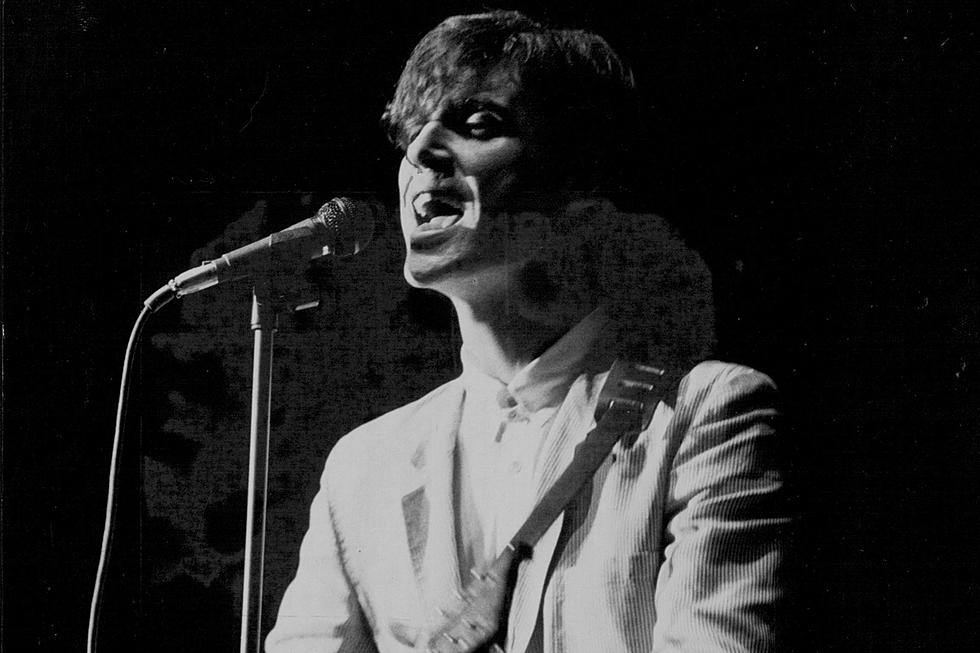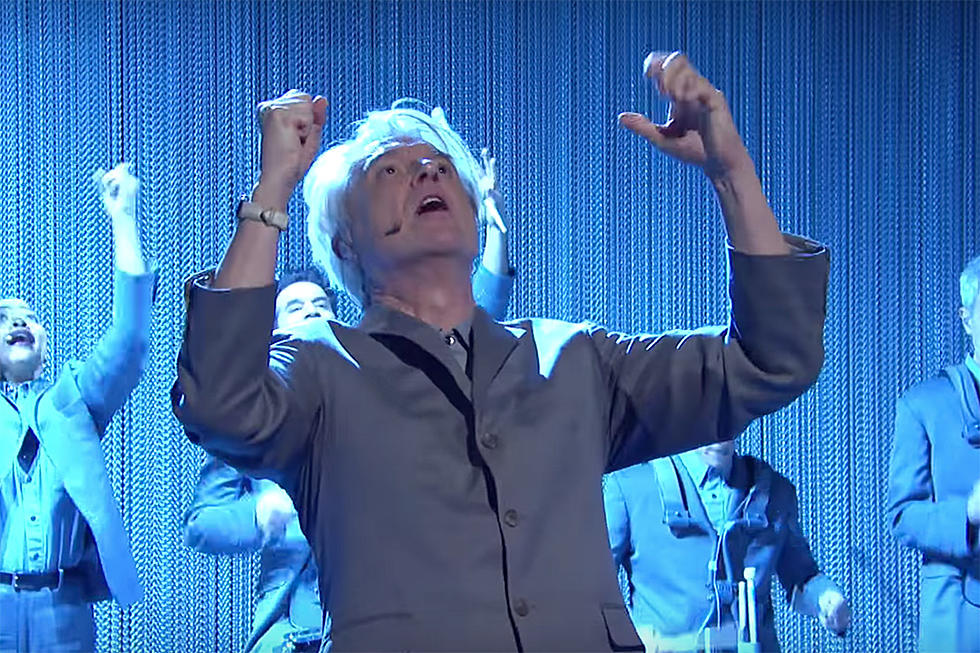
Why David Byrne Walked Out on Talking Heads’ Final Concert
Talking Heads' final tour was euphoric sensory overload. The 1983-84 trek — documented on Jonathan Demme's acclaimed concert movie Stop Making Sense — featured an expanded nine-piece lineup (including Parliament-Funkadelic's Bernie Worrell) and vivid visuals (like frontman David Byrne's oversized suit). But that celebration ended with the depressing anticlimax of the band's final show, which multiple members have described as their worst.
The last date took place Feb. 6, 1984, at the Sweetwaters South Festival in Christchurch, New Zealand. According to Setlist, the band played a 12-song set, including some of the staples ("Burning Down the House," "Making Flippy Floppy," "Swamp," "This Must Be the Place [Naive Melody]") from their recently issued Speaking in Tongues LP. But they nearly didn't cross the finish line, as drummer Chris Frantz recently told the Pittsburgh Post-Gazette.
"David left the stage in the middle of the set, and I had to go get him and basically drag him back to the stage," he said. "His excuse for leaving was he was 'sick of playing for people who had their feet in the mud.' It wasn’t even a particularly muddy day there. There might have been some mud in front of the stage. He just didn’t want to do the band anymore."
In a 2011 interview with The Guardian, bassist Tina Weymouth called the performance their "absolute worst gig ever," recalling how the audience was booing and throwing things at the stage after Byrne had brought up a couple girls who were protesting as part of the Maori indigenous rights movement of New Zealand.
"That was difficult enough," she said. "Anyway, we finally got onstage and we were five songs into the show when David Byrne ran off and refused to come back on. He said, 'I'm not going to play for a bunch of people dancing in the mud.' Go figure. David had a lot of temper tantrums when he got to be a big star. He couldn't stop it; fame and the whole diva thing was just overwhelming for him."
The band hosted a "great big party" after the show, but Byrne apparently didn't show up. "It was just this really sad, dismal affair where people got quietly drunk in the corner," Weymouth said. "The tour ended not with a bang but a whimper. It was awful that everything we'd been working toward ended like that."
"The party was sad," Frantz recently told the New York Post. "Everyone got the message.”
Despite the awkwardness of their final concert, Talking Heads did continue for several more years as a studio act, recording 1985's Little Creatures, 1986's True Stories (a soundtrack to Byrne's musical comedy film of the same title) and 1988's Naked.
In his recent memoir Remain in Love, Frantz described their actual breakup as slow and painful, with Byrne becoming increasingly distant from his bandmates. He allegedly told a journalist of the group's split in 1991 — without informing the musicians themselves. And, Frantz writes, he "stopped taking [their] phone calls and all communication from him ceased."
"Tina tried calling his office and his secretary said he was out of town, even though we knew he wasn't and Tina could plainly hear his voice in the background," the drummer recalled. He also writes that Byrne fired Talking Heads manager Gary Kurfirst "after insisting that he should manage only him and drop the rest of us." (The situation got uglier: The remaining three members — Weymouth, Frantz and guitarist Jerry Harrison — regrouped for a 1996 LP as the Heads. Byrne responded with a lawsuit over the name, but he eventually dropped it.)
While Byrne carried on with his solo career, the other members forged ahead with other projects: Harrison became an A-list producer in the '90s and beyond, helming mainstream rock albums by Live, Crash Test Dummies and No Doubt; the husband-wife duo of Frantz-Weymouth continued to perform as Tom Tom Club.
"Tina and I had to do something," Frantz writes in the book. "So, you know what we did? We built a great recording studio of our own and started making and producing records again. We spent more time with our family and friends. We became more active in our community. In 1990, as Tom Tom Club we toured with Jerry Harrison, Debbie Harry and the Ramones on the Escape From New York tour all over North America. Perry Farrell of Jane's Addiction saw the tour at the Greek Theater in [Los Angeles] and later told Gary it gave him the idea to create Lollapalooza."
Talking Heads did technically reunite on a couple occasions: a one-off version of "Psycho Killer" at a 1989 Tom Tom Club gig and a three-song set at their 2002 Rock & Roll Hall of Fame induction. Fans have pined for a full-fledged reunion ever since, but Byrne has remained allergic to the idea.
"I see what happens with other people when they do their reunions – and then it turns into a second reunion and a third reunion," he told Rolling Stone in 2018. "With someone like the Pixies, it's different: They're getting the audience now that they deserved ages ago. But with a lot of them, it just seems like you don't have anything new to say, and you go, ‘Okay, this is just some kind of nostalgia exercise.’ And I'm not interested in that.”


